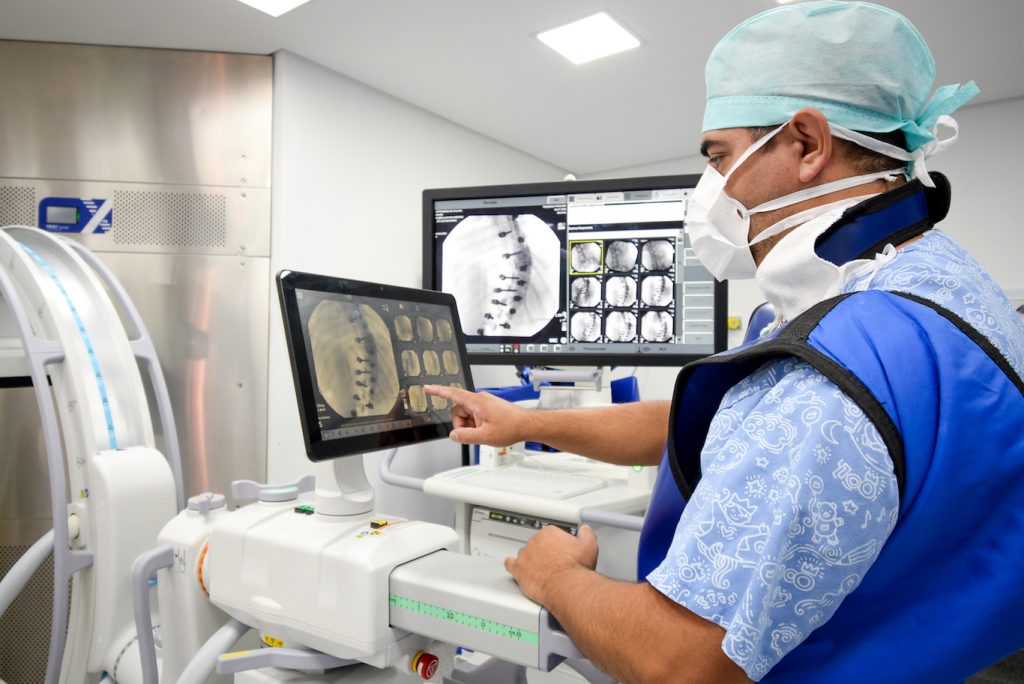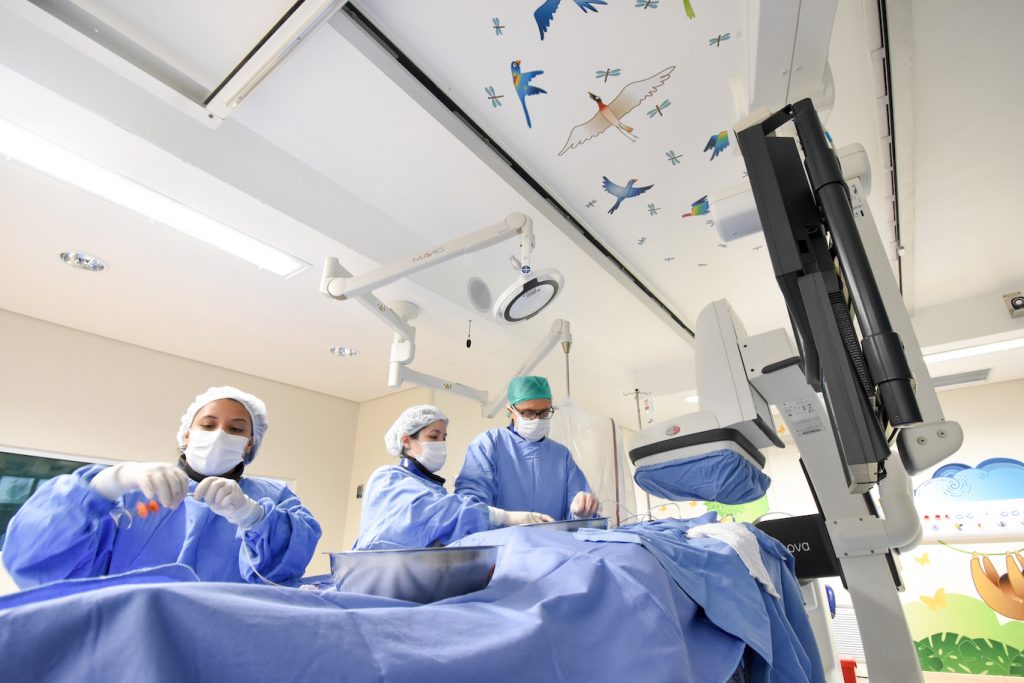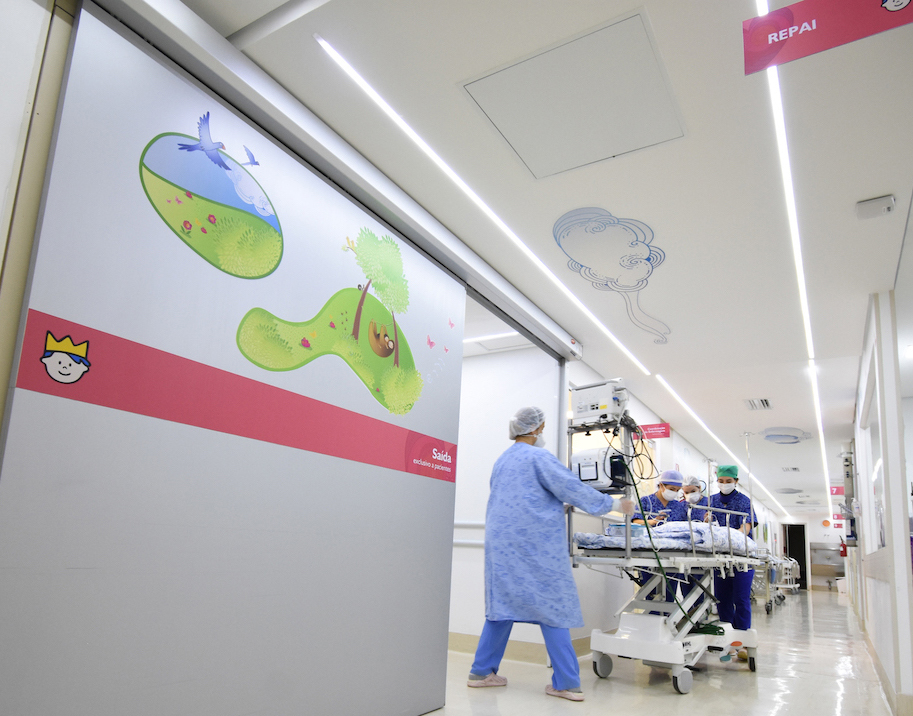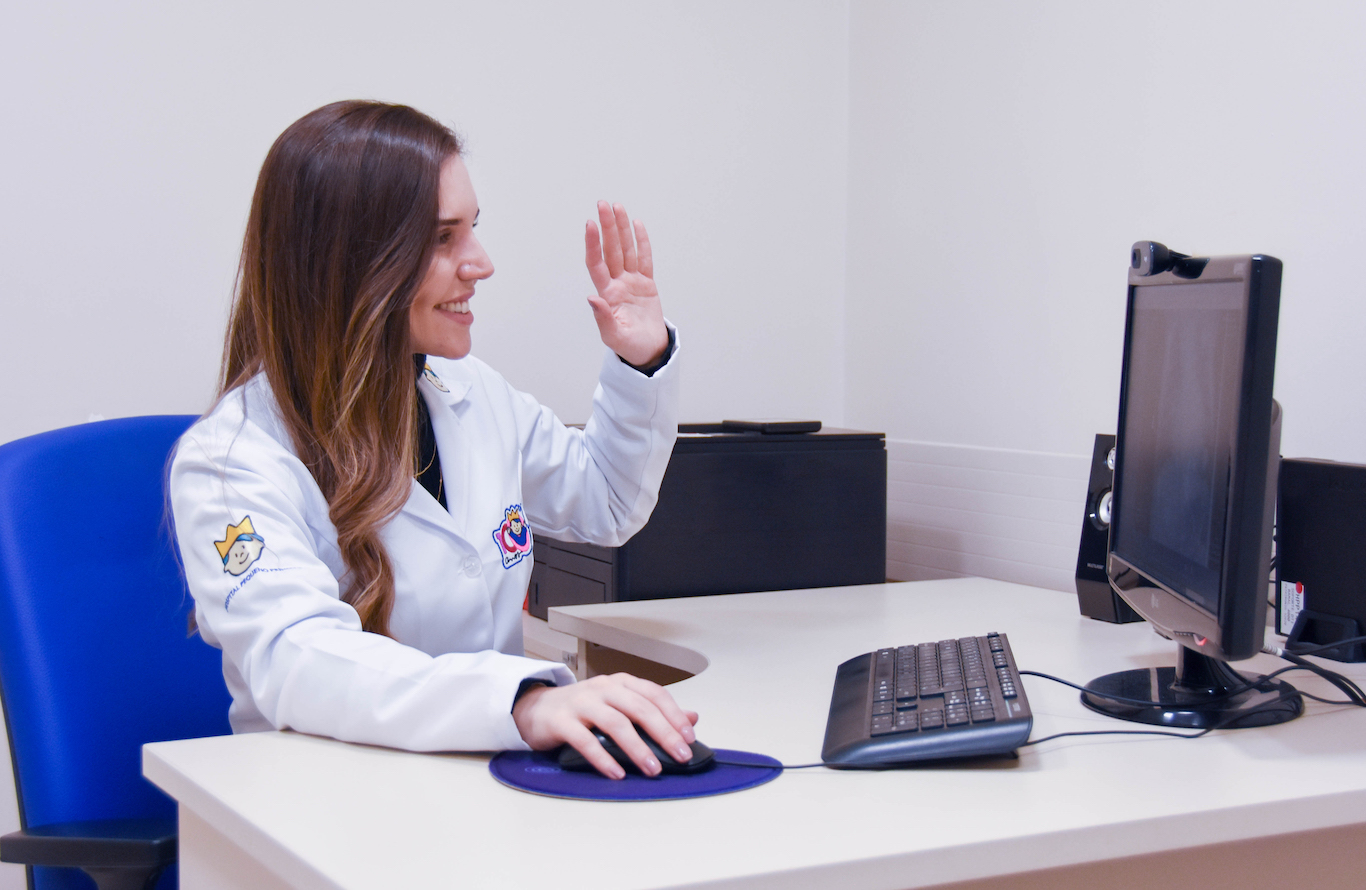Pequeno Príncipe is one of the hospitals that most perform surgeries on children in Brazil
There are more than a thousand surgical operations per month, performed by 51 surgeons and 15 anesthesiologists, in 16 specialties and subspecialties, ranging from simple procedures to transplants

Gael is a 5-year-old boy who, in 2021, started experiencing severe abdominal pain. When performing a CT scan at a hospital in the city where he lives (Lucas do Rio Verde, in Mato Grosso), the doctors found a gargantuan mass. However, there were no resources in the city to deepen the investigation. The family then began a race across Brazil in search of a diagnosis and treatment for Gael. “We went to several doctors all over the country: we went to Recife, Fortaleza, Minas Gerais, Juiz de Fora, Rio de Janeiro and São Paulo, and nobody wanted to take his case,” says his mother, Vanessa Marques.
In the search for specialized care for their son, the family learned that the Pequeno Príncipe Hospital had a large Pediatric Surgery Service. “We got in touch, and the doctor told me, ‘Come here, we got to do something about it.’ That meant the world to us. We had nothing, we were at the end of the line, we were told that we had to give up,” she recalls.
Gael was admitted to Pequeno Príncipe on March 1st. From there, he had the diagnosis of a rare tumor confirmed and began to receive the appropriate treatment. Part of this treatment was surgical, to remove the large mass that was compressing his abdomen. Two surgeries have been performed so far, and treatment is still in progress. “What was once considered an impossible surgery, turn into possible here at the Pequeno Príncipe. A surgery that nobody wanted to perform, was provided here and it was a success. Today he doesn’t feel pain, he can eat, and now he has a quality of life that he didn’t have before,” celebrates his mother.

Structure and impact
Like Gael, thousands of other children undergo surgery every year at Pequeno Príncipe. With 51 surgeons and 15 anesthesiologists, the institution has one of the largest surgery services for children and adolescents in Brazil, providing 16 specialties and subspecialties. In addition to pediatric surgeries (specialty responsible for general, oncological, urological, neonatal and video surgeries), the Hospital performs orthopedic, cardiological, otorhinolaryngological, vascular, ophthalmological, plastic, oral and maxillofacial surgeries, neurosurgeries, head and neck surgeries, interventional radiology, hemodynamics therapy, epilepsy surgery, liver, kidney and heart transplantation.
The Surgical Center has eight rooms dedicated exclusively to surgeries in children and adolescents and a ninth room dedicated to hemodynamic procedures. It is equipped with state-of-the-art equipment: an example is the operating table that rotates 360 degrees to allow orthopedic spine surgical operations to be performed. Pequeno Príncipe was the first Brazilian hospital to receive this equipment.
In the first half of this year, about 6,000 surgeries were performed, which involved almost 10,000 surgical procedures. “We are still below our historical average and our capacity, which is about 30% higher than that,” reveals the manager of the Surgical Center, Doris Bordini Gozi. She explains that when performing an operation, the Hospital needs to reserve a bed for the patient in the postoperative period. However, with the pandemic still ongoing and the large number of respiratory cases in the city, it is also necessary to allocate beds for clinical cases.
The Hospital performs small, medium and large surgeries. “However, even simple procedures are often considered complex here because they involve patients who have severe comorbidities,” emphasizes Doris.
“Today, more than 40% of our admissions are surgical related. Increasing our capacity for surgical care is in our planning and is one of the great contributions we can make to the Public Health System (SUS, abbreviation in Portuguese), by providing children and adolescents with greater access to surgeries that involve greater complexity and that we are able to absorb,” points out the technical director of the institution, Donizetti Dimer Giamberardino Filho.

Teams and operation
The Surgical Center is open seven days a week, 24 hours a day. The vast majority of surgeries are performed from Monday to Friday, from 7 a.m. to 7 p.m. However, for the specialties of orthopedics and pediatric surgery, there are 24-hour shifts. “On average, 90 professionals move around the Surgical Center per day,” reports Doris.
In addition to the support of the ICU beds in the postoperative period, one of Pequeno Príncipe’s differentials is its team of anesthesiologists. There are 15 highly specialized professionals. Doris also highlights the important role of nursing teams, specialized in supporting and monitoring the entire surgical procedure. “They are highly differentiated professionals, who dominate the entire routine of a highly complex surgical center, such as ours,” she emphasizes.
Training of professionals
Another great contribution that Pequeno Príncipe makes to the field of surgery for children and adolescents in Brazil is through the training of new professionals. Every year, the institution offers the Medical Residency Program in Pediatric Surgery. It also provides professionals with specialization courses in: Pediatric Anesthesiology; Pediatric Heart Surgery; Spine Surgery in Pediatrics; Genitourinary Surgery, Kidney Transplantation and Video endourology; and Pediatric Liver Transplantation.
Click below and learn more about the Surgical Center of the Pequeno Príncipe Hospital.
More
Scientists develop 3D lung alveoli to test drugs
Using a bioprinter, the researchers were able to reproduce the lung structure, making the prototype suitable for testing new drugs
Telemedicine will benefit children and adolescents from vulnerable areas
Iguape, in upstate São Paulo, and Paranaguá, on Paraná coast side, are the first cities to receive the initiative









